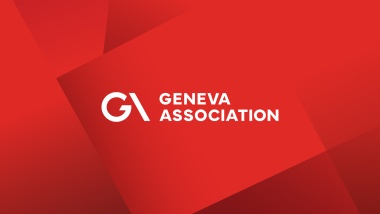Virtual conference
Liability trends in a transitioning world
Each of the three session explores an area in which both legal standards and political choices are highly uncertain and could possibly shift. The first session on the dynamics of social inflation in light of the pandemic investigates the drivers of social inflation and its potential to spread beyond the U.S., with COVID-19 as a potential catalyst. The second session on climate liability risk will shed light on the rise in climate-related litigation in a number of countries. Finally, the third session addresses potential regulatory frameworks for efficiently allocating liabilities related to the use of artificial intelligence.
The Evolving Liability Conference (ELC) is an annual convening of experts from the re/insurance industry, academia and the legal community to discuss the dynamics of liability law, litigation and underwriting and the implications for the re/insurance industry.
Summary
The COVID-19 pandemic is likely to accelerate the green and digital transformations of the economy and society, altering the risk landscape for insurers. The Geneva Association’s 2020 Evolving Liability Conference, Liability Trends in a Transitioning World, was held virtually on 6 October 2020 and co-organised with Swiss Re. The conference brought together legal and re/insurance experts to discuss three topics that are representative of such transformations.

Jad Ariss, Managing Director, The Geneva Association and Pierpaolo Marano, Director Evolving Liability, The Geneva Association welcome participants to the conference.
Session 1
Session 1 on ʻThe dynamics of social inflation in light of the pandemicʼ investigated the drivers of social inflation and its potential to spread beyond the U.S., with COVID-19 as a potential catalyst.

Top row: Damon Vocke, Partner, Head of Corporate & Regulatory Insurance Litigation, Duane Morris LLP; Darren Pain, Financial Economist, and External Consultant, The Geneva Association; Bottom: Ciara Brady, Global Head of Liability, Allianz Global Corporate & Specialty (bottom).
Key messages
- Social inflation is an insurance buzzword that is not very well defined. Broadly speaking, it refers to all the ways in which insurers’ claims costs rise over and above general economic inflation.
- Outsized litigation outcomes and jury awards grab the headlines and play a key role. More broadly, various legal, societal and behavioural shifts all interact to affect the scale and pace of insurance settlements.
- Recently, there has been a sharp acceleration in claims across several U.S. liability lines. The durability of this short-term trend is unclear and will largely depend on the persistence of the underlying drivers, in particular: the aggressive strategies of plaintiffs’ attorneys, the growth of third-party litigation finance and public recognition of – and anger concerning – social inequality.
- Though largely a recent U.S. phenomenon, there are signs of social inflation in some other countries, too. This is particularly true in securities litigation and associated financial insurance lines (e.g. directors and officers (D&O) liability).
Implications for insurers
- Liability insurers must look through any short-term volatility to assess the long-term trend in claims. Persistent social inflation that goes unrecognised for years can lead to chronic under-reserving and underpricing.
- COVID-19 is creating considerable additional uncertainty for the claims outlook and could reinforce some of the recent drivers of social inflation.
- Given the potential for international ‘contagion’ – the notion that social inflation will, to some degree, spread beyond the U.S. – insurers must monitor global developments across a variety of liability insurance classes, including product liability, medical malpractice and financial lines.
Session 2
Session 2 on ‘Climate litigation risk’ focused on the evolution of the climate litigation landscape and the potential implications for insurers (life and non-life).

Top row: Maryam Golnaraghi, Director Climate Change and Emerging Environmental Topics, The Geneva Association; Jane Mandigo, Senior Expert, Senior Vice-President Property & Casualty Business, Swiss Re; Bottom row: Nigel Brook, Partner, Clyde & Co.
Key messages
- Since 2015, climate litigation has gained pace, increased in volume, expanded in scope and geographical coverage, and courtrooms are becoming a new battlefield to push for climate change action.
- Governments and corporations are being targeted by a wide range of litigants in many jurisdictions, using myriad theories of legal duties.
- This area appears to be the only truly global litigation subject, with the cross-pollination of ideas, strategies, and support across jurisdictions.
- Scenario analysis linked to climate change risks for different business lines and economic sectors is highly important. It should also cover climate litigation risk.
Implications for insurers
- Climate litigation will impact underwriting under property, casualty and professional lines, with implications for other lines of business as well, linked to knock-on effects on corporate strategies and/or operational decision-making in several sectors.
- Climate litigation may also impact investments, as investee companies' strategies are affected.
- Insurers may face regulatory sanctions for failing to address liability risk as part of emerging requirements on climate risk assessment and reporting.
Session 3
Session 3 on ‘Artificial intelligence and liability regimes’ addressed potential regulatory frameworks for efficiently allocating liabilities related to the use of artificial intelligence (AI).

Top row: Florian Laeubli, Head NEAT UW Vertical & HUB Underwriting International Casualty, AXA XL; Fabienne Zwagenmakers, Policy Advisor, Public Affairs, Insurance Europe; Bottom row: Angela Gleason, Senior Director, Cyber & Counsel, American Property Casualty Insurance Association (APCIA).
Key messages
- Current approaches to AI and liability in the EU and U.S.:
- The European Commission’s 2018 review found the product liability directive to be fit for purpose; from an insurance perspective, it is a well-balanced system that provides compensation and allows for innovation, enabling insurers to price in this space.
- The U.S. approach is also pragmatic, looking at how existing regulation and laws apply to AI issues.
- Industry positions are that AI doesn’t necessarily represent something completely new. While better legal certainty and guidance from regulators/legislators on specific gaps in AI and liability are welcome, measures should not stifle innovation.
- The EU Parliament recommended a civil liability framework for AI to the Commission that would require all operators of high-risk AI systems to hold liability insurance.
- Offering such compulsory insurance for AI would be challenging for insurers as this coverage would be very expensive and could stifle both the manufacturing of AI applications and insurance product innovation.
Implications for insurers
- Some measures, particularly in the EU, raise significant concerns regarding insurability and appropriate allocation of liability.
- Compulsory insurance for AI may seem to be the way forward for policymakers, yet for insurers it offers a one-size-fits-all approach to a complicated situation.
- The voice of the insurance industry is critical in discussions with policymakers – regulators and legislators need to adequately understand insurance and liability implications when discussing proposals.






